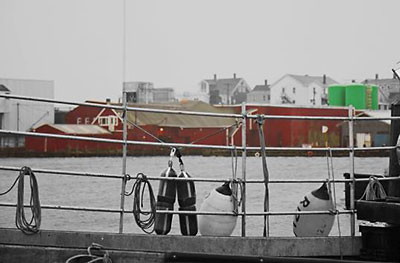
Gurry is what’s left over after a fish has been filleted. This mixture of fish heads, skeletons, scales, and fins was once loaded on boats and disposed of in the sea, a practice that polluted the ocean environment and was costly to fish processors. Recognizing the value of this byproduct, Ocean Crest Seafood in Gloucester worked with the University of Massachusetts Amherst Marine Station to turn this nutrient-rich waste into a marketable product in the 1980s. The result was Neptune’s Harvest organic agricultural fertilizer. In 2001 the company expanded its storage capacity by 30%, and is looking to expand even further.
Some of the greatest opportunities in the seafood sector lie in the kind of innovative research and product development that made manufacturing Neptune’s Harvest organic fertilizer possible. Unfortunately, since the 1990s, funding and resources for such research has been cut, with some research facilities shutting down completely. As fishermen increasingly face challenges of competing and remaining viable in an international market, fishing advocates are promoting strategies that would strengthen fishing businesses.